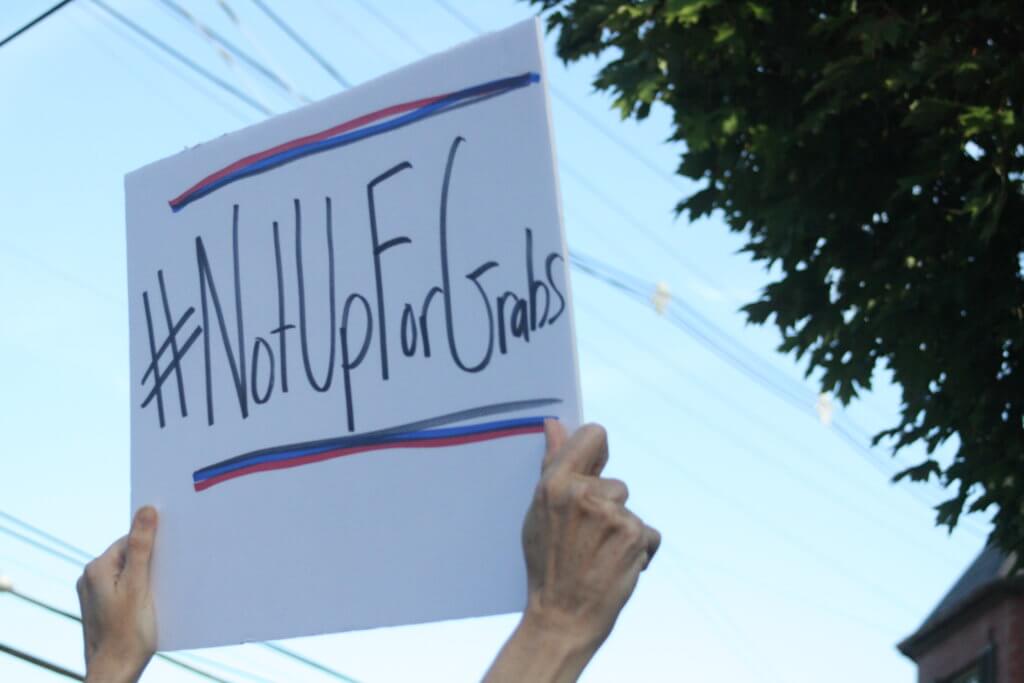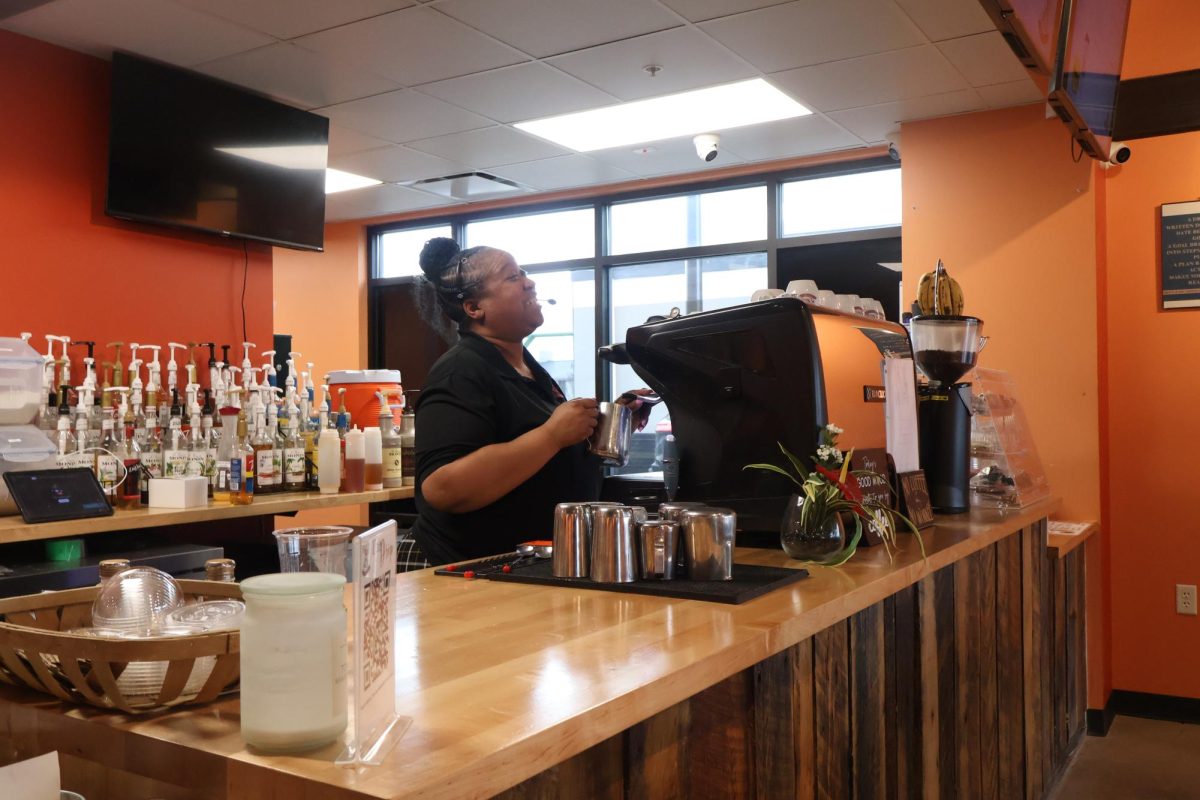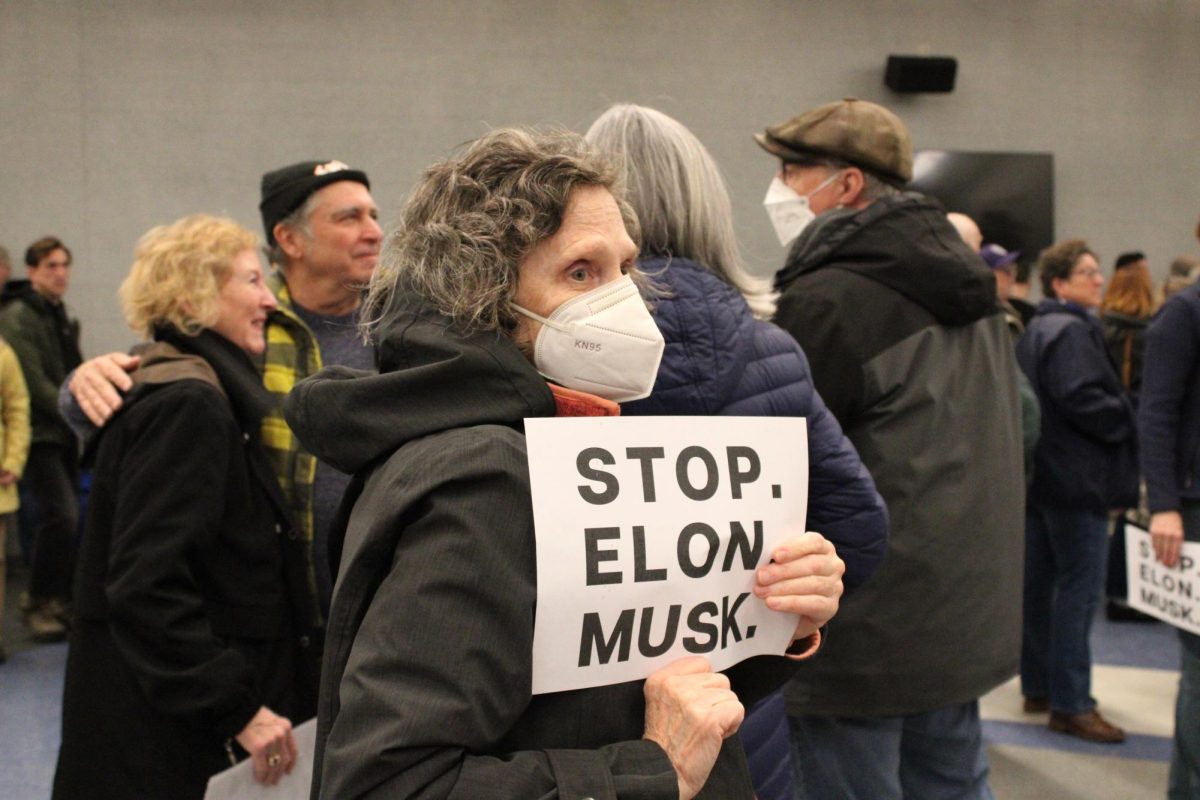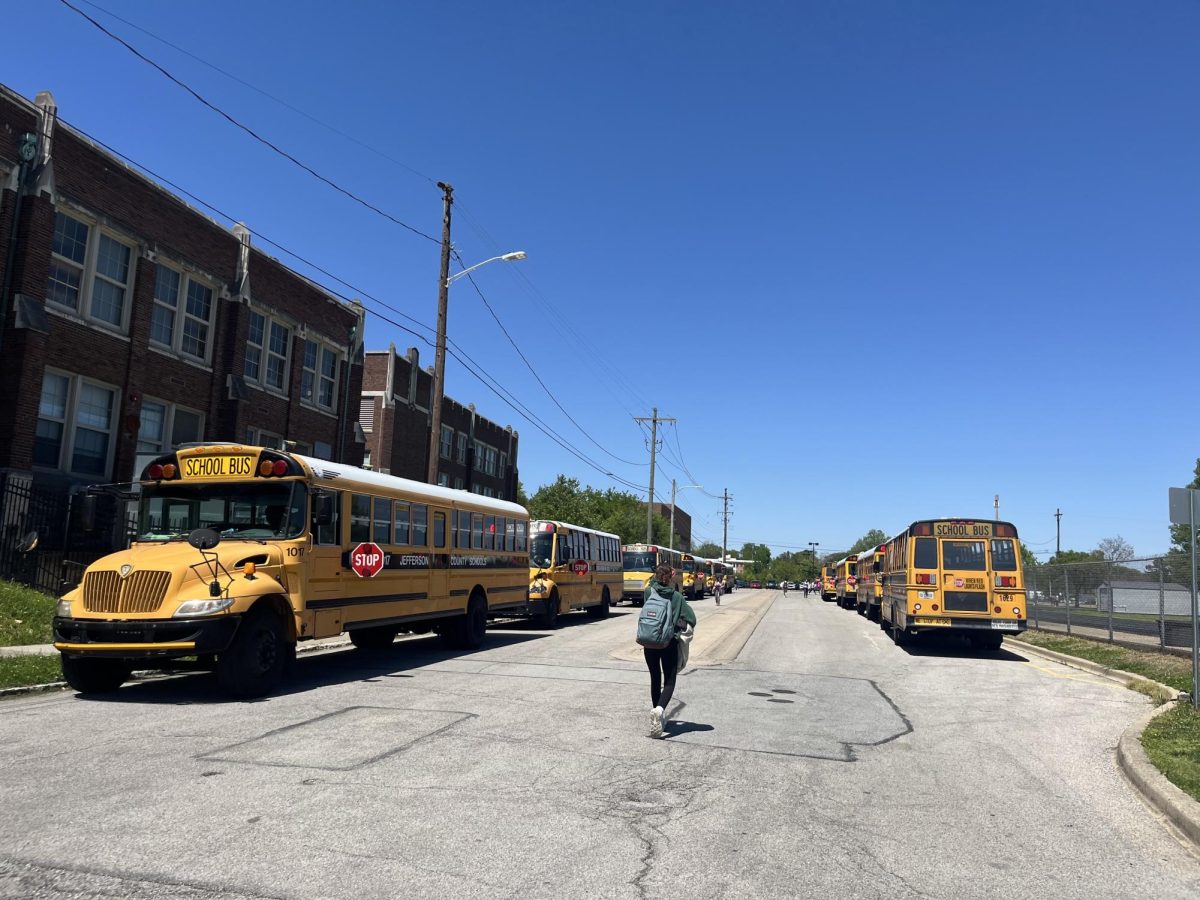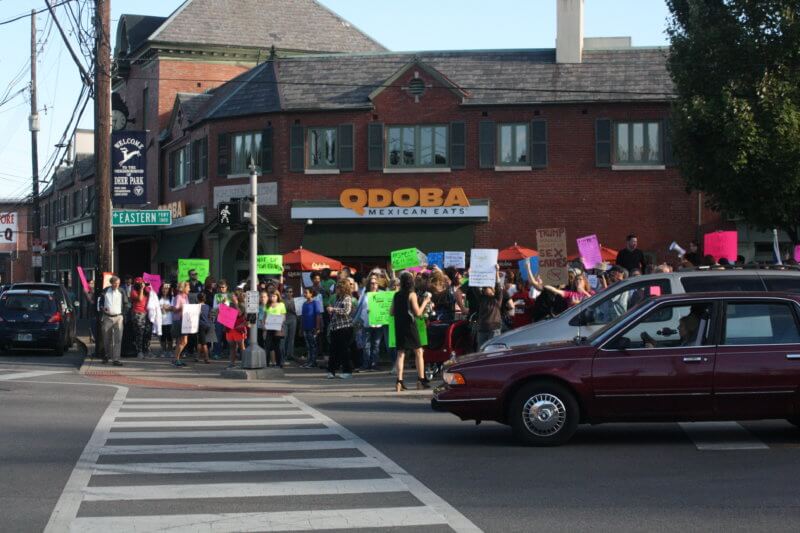
Hundreds of protesters congregated for the #NotUpforGrabs rally on the corner of Bardstown Road and Eastern Parkway on Sunday, Oct. 9 to denounce Donald Trump’s recently surfaced remarks about women.
The rally culminated in a march down Bardstown Road and ended at the Clinton campaign’s Kentucky headquarters. Many protesters entered the establishment after the rally.
“The campaign is happy to support and just be here,” said John Webber, one of the people working at the headquarters and a Manual alumnus, “there are lots of Hillary supporters coming in, and it’s fun to see some familiar faces.”
Rally organizers Molly Shah and Vanessa Cantley both said speeches before the march, and Shah introduced the seven other speakers.
Shah and Cantley initially circulated the event via a Facebook event page.
There were 231 people who signed up with plans for attendance through the page; however, the organizers speculated that even more actually attended the rally. Those who indicated that they were interested in the rally on Facebook amounted to 557 people and the event page was shared with 2747 people.
Shah said that the purpose of the rally was “to say that there are people that are done. That we’re done and this is offensive and we’re not going to stand for it anymore.”
Holly Houston, the first person to pitch the idea for the rally, spoke about how commentators on an article on the Courier Journal received the rally. In response to the comments which called her a bra burner, she took off her bra in protest.
“Our primary goal was to send a message that this culture of misogyny that we live in, where statements like Mr. Trump made in that video have become commonplace and brushed off as ‘guy talk,’ have created a rape culture and a culture where women are afraid to report sexual assault . . . or think that it’s so commonplace that no one would care,” Cantley said, “and that’s why we wanted to organize this rally: to send the message that it’s time for this to stop. Our women and our girls, our mothers, sisters, friends, and daughters deserve better.”
“To say nothing is to be complicit. I feel like we have to say something in the biggest way we can right now and to tell people that this is not acceptable,” rally attendee Becky Holloman said.
Eight people, one of which was co-organizer Cantley, spoke at the rally. Each of the speakers represented a variety of causes, ranging from Kentucky Dreamers Coalition: Fighting for Immigrant Rights and Equality (KDC: FIRE) to Black Lives Matter.
The organizers of the #NotUpforGrabs rally invited these organizations in order to provide them with a platform to discuss the intersection of their social issues in relation to the Trump presidential campaign. The rally retained a focus on the perspective of women’s issues.
Jesenia Avila from KDC: FIRE spoke after Nwanguma.
Jaison Gardner, a representative from Louisville’s chapter of Black Lives Matter, spoke about minorities’ struggles during his speech.
Erin Kelley and Marilee Kreml, a couple whose marriage was delayed for more than a decade due to previous laws against LGBTQA+ rights and who have a bisexual daughter, found personal ties and sympathies with the rally, saying that [Trump’s] racist and sexist platforms go against their beliefs.
Representatives from multiple organizations and statewide campaigns attended the rally as well upon request of the organizers.
Advocates Tamarra Wieder, director of external affairs for Indiana and Kentucky, and Meghan Rouse, the Kentucky donor engagement officer, came to the rally on behalf of Planned Parenthood.
They said that the purpose of their attendance was to highlight the importance of their patients’ representation and the respect of all individuals regardless of their identity.
“There have been a lot of concerning conversations about women in this election,” Wieder said, “and the way that people have been talking specifically about how to treat women is unacceptable. We’re here to show that all people deserve respect no matter their gender, their age, and their weight and that we’re not up for grabs—nobody is up for grabs.”
“Our goal [in attending the rally] is really just to leverage the voices of our patients more than anything. We have a very diverse range of people who come to see us everyday—men, women, people who identify as male, female, straight, gay, queer, and lesbian—and we really just want to make sure that conversations nationally are inclusive of our patients,” Rouse said.
Some politicians joined the protesters in the rally.
“We have to have civility back in politics and I think that whenever we allow the dialogue to go this far in the wrong direction, it’s important to stand up and and say we can do better,” Morgan McGarvey, a candidate for Kentucky’s state senate and Manual alumnus, said.
Shiya Nwanguma, the college student who was assaulted during Louisville’s Trump rally, spoke against Trump’s remarks and said, “I am representing those who are not able to speak today, yet share the same sentiments as I do.”
Karina Barillas spoke in English and chanted in Spanish about her grievances with Trump regarding his policies toward the Hispanic and Latin American communities in America.
Vanessa Cantley spoke about her own experiences with sexual harassment.
“I’ve been bothered by the political climate for a long time. I don’t often know what to do about it,” Erin McMahon said, “there is no reason I would speak more than anyone else, but I wanted to do something—anything.”
She tried to reach out to Trump supporters during the speech.
“My intent was to speak directly to Trump supporters. I have had very few limited interactions with Trump supporters on Facebook, social media and the times when you actually get down to it and talk to somebody, what they really want is something different,” McMahon said. “It’s so tempting to demonize the Trump supporters because the things he says are so abhorrent. But, I want to find that common ground because they are people too.”
Cantley looked to an intersectional approach for progress in terms of the future of women’s equality.
“It’s going to to take men and women of all races, all socioeconomic statuses—it’s going to take everyone to change this culture that we’ve created where women are seen as less than equal, where our bodies are viewed in the context of entertainment and pleasure for men,” Cantley said, “and we’re all responsible. We’re all responsible for creating it, and we all need to be responsible for stopping it.”



